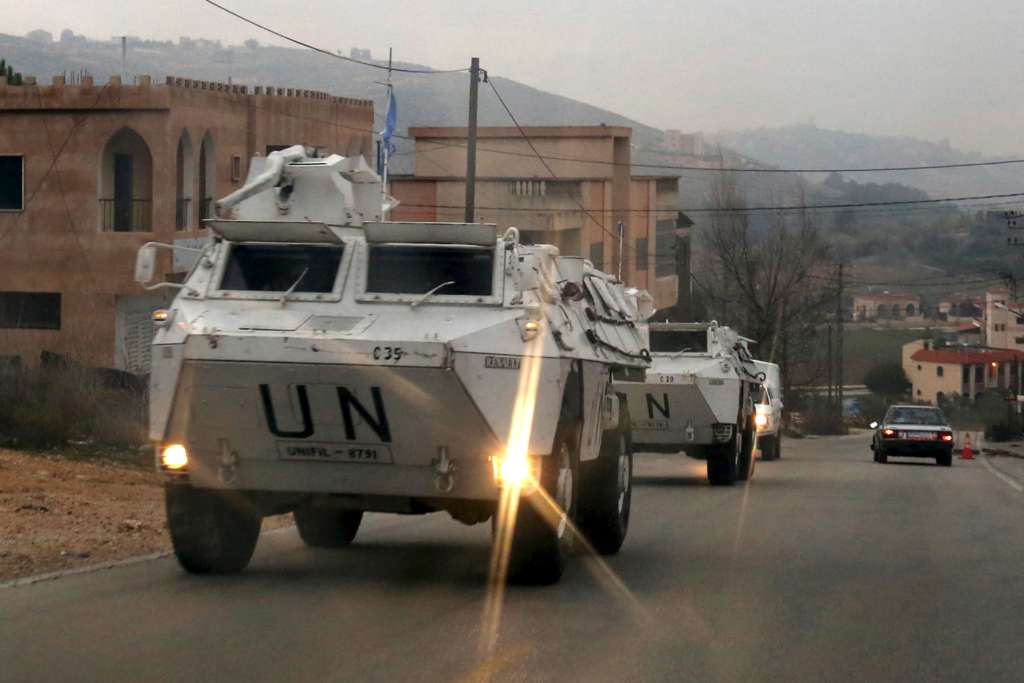The UN peacekeeping operation in Lebanon, UNIFIL, was extended Wednesday with new directions to conduct more patrols with the Lebanese army and report when peacekeepers run into roadblocks in “Hezbollah” strongholds in the South.
The Security Council unanimously approved the plan for the mission, extending it another year after a flurry of negotiations over US and Israeli desires to do more to keep Hezbollah from gathering illegitimate weapons.
The resolution will see UNIFIL continue in its current mandate but spells out that the peacekeeping operation is authorized to “take all necessary action in areas of deployment of its forces … to ensure that its area of operations is not utilized for hostile activities.”
The resolution also asks UN chief Antonio Guterres to look at ways the peacekeeping mission can increase its visible presence, including through patrols and inspections.
US Ambassador to the UN Nikki Haley has been calling for UNIFIL to take a stronger stance on Hezbollah in south Lebanon and told reporters ahead of the vote that she was “very happy” with the final draft of the resolution.
“The status quo for UNIFIL was not acceptable, and we did not accept it,” the diplomat said, adding the changes will help ensure UNIFIL “has the power and the will to do its job.”
UNIFIL was originally created to oversee the withdrawal of Israeli troops after a 1978 invasion. The mission was expanded after the 2006 war between Israel and Hezbollah so that peacekeepers could deploy along the Lebanon-Israel border, to help Lebanese troops extend their authority into their country’s south for the first time in decades.
But this year, the annual exercise of renewing UNIFIL became unusually fraught.
Israeli Prime Minister Benjamin Netanyahu raised his criticisms of the mission personally — and publicly —with Guterres during a joint news conference Monday, and Haley and UNIFIL’s commander openly clashed last week.
The commander, Maj. Gen. Michael Beary, told The Associated Press there was no evidence of the arms traffic and stockpiling that the US and Israel describe in Hezbollah strongholds in southern Lebanon. Haley said his remarks show Beary is blind to a “massive flow of illegal weapons.”
Council members largely wanted to keep UNIFIL as-is, said French Deputy Ambassador Anne Gueguen, whose country was in charge of drafting the renewal resolution. France didn’t want to put “the delicate balance” of southern Lebanon into question, Gueguen said.
“UNIFIL, of course, can do better and can do more, but no one within this council can imagine, for one second, the environment (of stability) existing there without UNIFIL,” she said.
Italian Ambassador Sebastiano Cardi, whose country is among the biggest contributors of troops to UNIFIL, said it was important not to blur lines between peacekeepers’ duties and those of Lebanese forces.
“Promoting confusion in that regard undermines UNIFIL’s operation and strips the Lebanese authorities of their own sovereign prerogatives,” Cardi said. He said his nation was concerned about the changes but accepted them for the sake of Security Council unity.
The secretary-general has stressed that under UNIFIL’s mandate, it is primarily the Lebanese military’s responsibility to ensure the south is free of unauthorized weapons.
